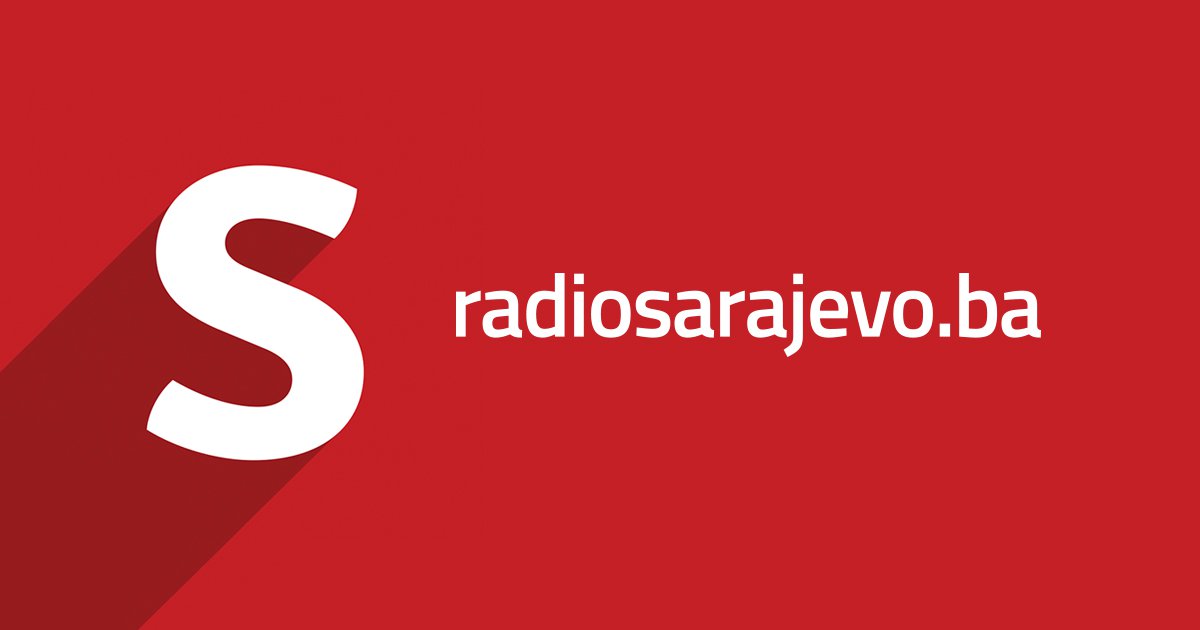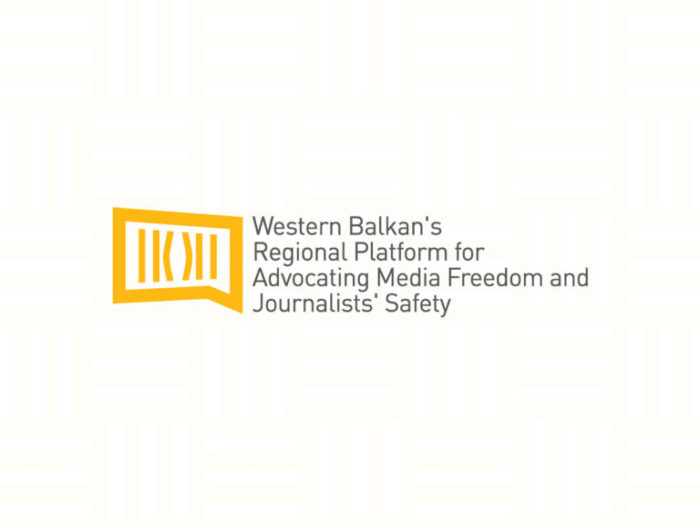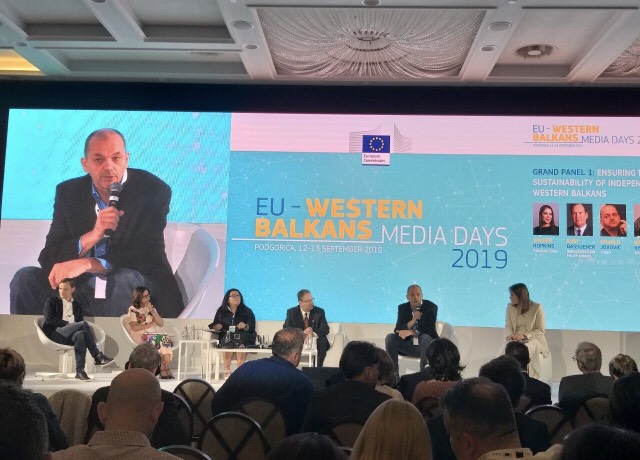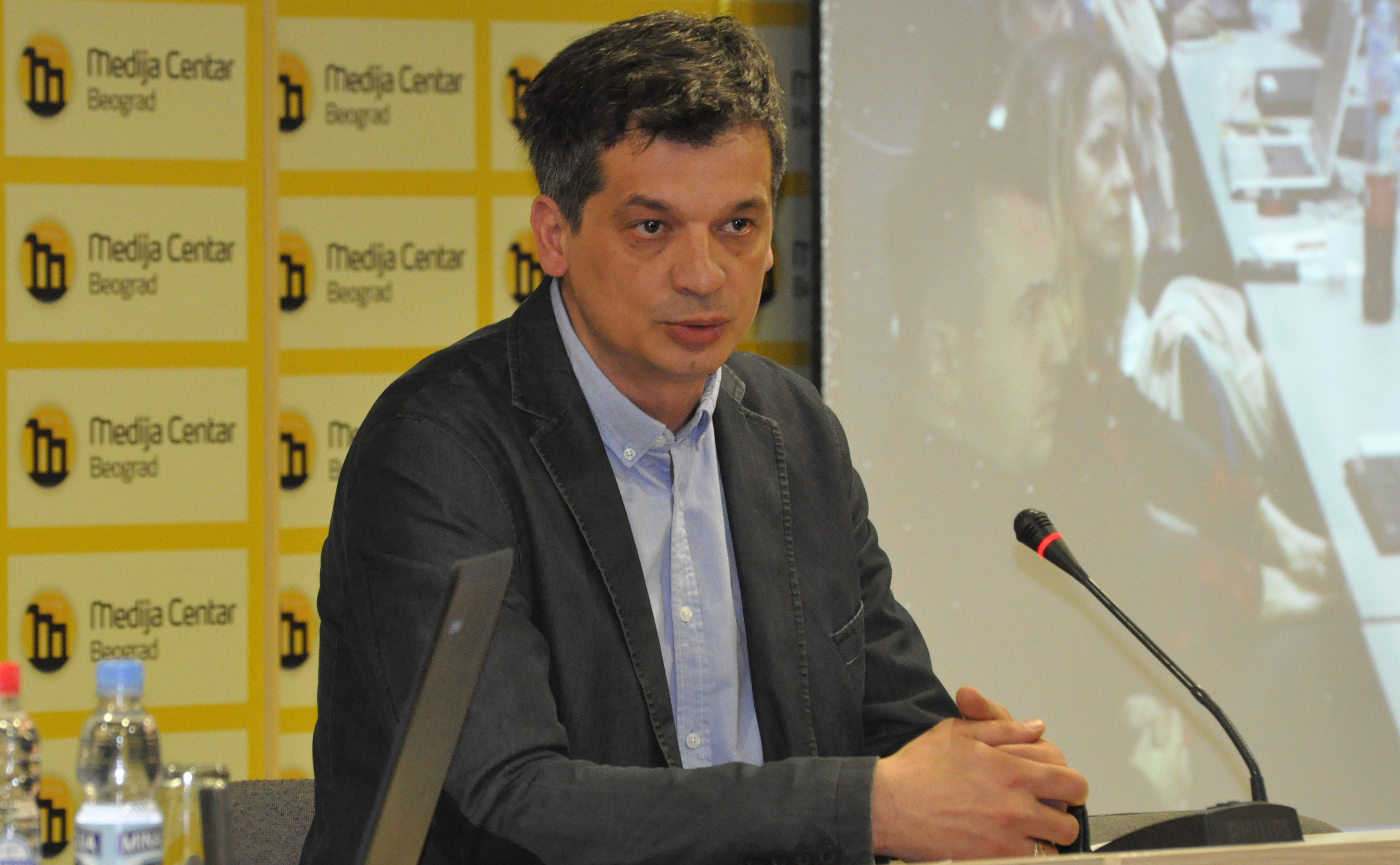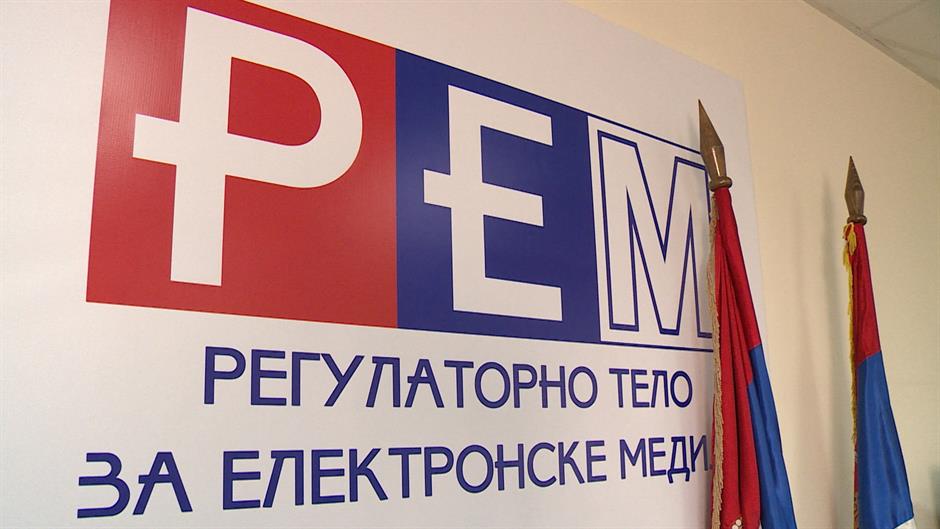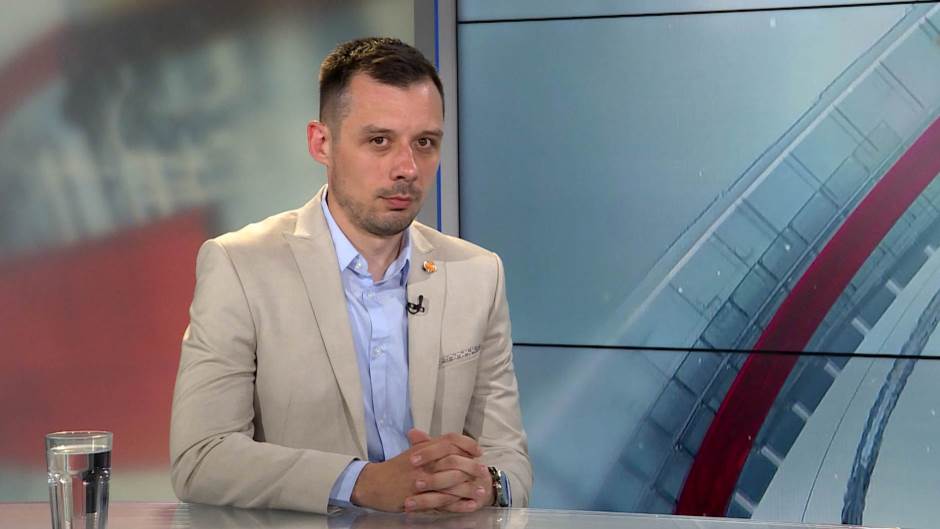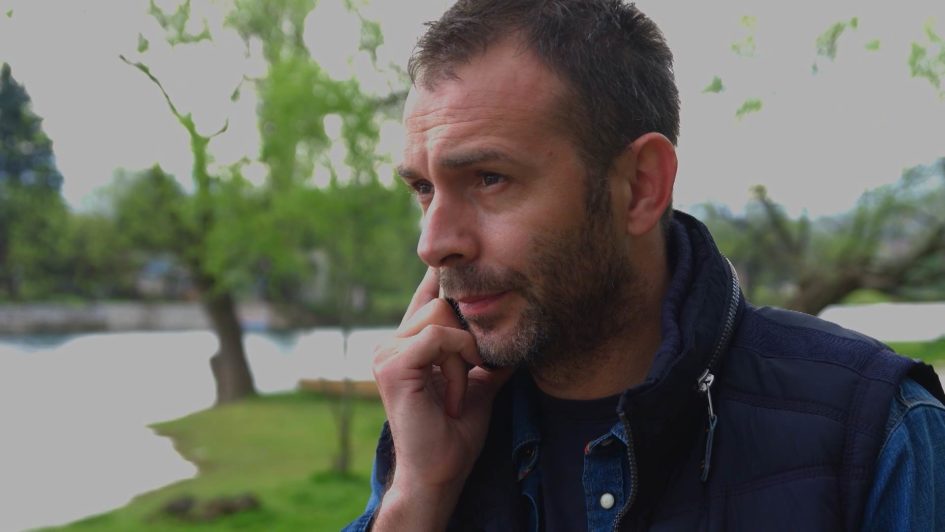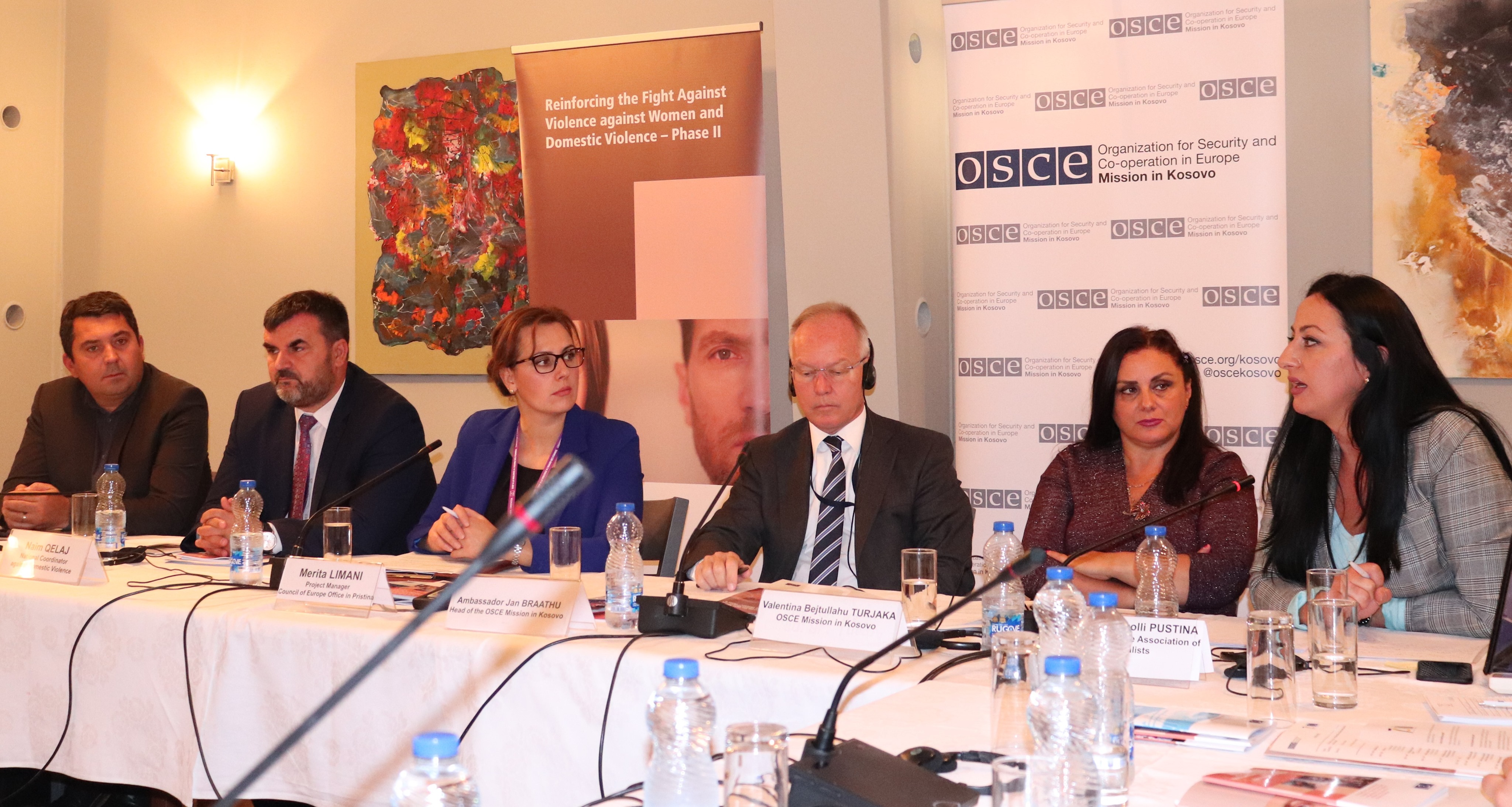Journalist of the online magazine “Žurnal” Avdo Avdic, whose research articles have provoked number of reactions in BH public in recent years, but also among politicians and representatives of the authorities, judiciary and the international community, writes for BH Journalists about his experiences and the most important stories he worked on that formed him as a journalist. This article is published as part of a project of cooperation with the German Embassy in BiH.
Sarajevo, 25.09.2019. -I have been writing about other people for nearly two decades. Which is why I am under enormous pressure now, when I’m about to write about myself in a leading role. I am a journalist, an editor and a censor at the same time. Whatever I chose to write about seems like exaggeration, and everything I thought I should leave out reminds of self-censorship. That’s why I will start by saying that pressure in journalism is often a subjective feeling forcing silence upon facts and events.
Conquering freedom
In my 17 years working as a journalist, I was a small town correspondent, a big city correspondent, a journalist in editorial office, a reporter in a TV investigative programme, a newspaper journalist, a TV reporter, an editor, an editor-in-chief and, finally, an online magazine investigative journalist.
I have won my freedom step by step. It was not a gift. Some of my decisions were naïve, childish. I’ve been through crises and life-threatening situations. There were times I had this groundless feeling that I’m being pressured. One fact, however, helped me overcome all of these impediments – my own feeling of being “clean”. Sure, some will say I’m not clean; they’ll write about how I was seen in the company of various people, they’ll claim I was influenced by him or her, but none of them can say, or rather prove, that I made up any of my stories, or was compensated in money or any other way for things I published. They can’t say I have ever helped anyone get a job in government institutions or any other state-owned company.
To be honest, in the beginning I felt enormous pressure because of such claims on Internet forums – mostly constructed in the heads of various politicians and a few “media experts”. When you read about yourself being an alcoholic and a drug addict and you have never tasted any of it in your life, when they write that eight different people paid for your home and you know that you’ll be paying your loan to the bank for another 20 years, when ministers you write about claim that you are a pro-regime journalist, while they are the regime, when they call you a traitor of Bosniaks and a hater of Croats and Serbs at the same time, when they call you an infidel and an islamophobe and then accuse you of supporting “Islamic terrorists”, when you’re interviewed in prosecutor’s offices for publishing the truth, when they air your phone conversations and cunningly devise that you’re sexually abusing your female colleagues in these conversations – you stop and ask yourself if it’s worth the effort?
Of course it is.
And, as time passes by, you get less and less irritated by fabrications of people who have no guts to sign their own words. These “accusations” entertain me, nowadays. Or, rather, they motivate me to push myself even harder to corroborate the stories about wrongdoings I’m investigating.
The first step to winning your freedom is conquering your own fears. And that is no easy feat.
I remember publishing a story about a drug gang from the town of Tuzla. I was just starting my career in journalism, working as a correspondent for Oslobodjenje daily. I pinpointed about a dozen “tough” guys as top heroin dealers and described how they run their business and how they’re protected by the police. When the story was published, many “friends” called me crazy, saying these guys were dangerous. And even though Emir Kodzaga and other story protagonists never called or threatened me, the myth surrounding them made me hesitant to leave home these days. Ten days later, when I realised that nothing happened, I wrote another story about them. The myth about them collapsed and I conquered my very first fear as a journalist. Some years later, Kodzaga was arrested for dealing heroin and I was already working for Federation TV.
Stories, editors and political pressure
My first “proper” assignment at the FTV PBS was the story about Gornja Maoca. The faraway village on the slopes of Majevica mountain was not particularly popular back in 2006. It was well-known only to the police and sheikh Nusret Imamovic’s followers. I went there with a cameraman. We walked up the mountain creek, filmed a couple of shots in the village and then went straight to the Jordanian curriculum based school. Sheikh Imamovic walked out of one of the houses, threatening that he would “track me down” if I mention any of the things I saw in Maoca. It put me in a serious dilemma whether I should publish this story, but I eventually decided that that’s the only right way to go.
Nusret Imamovic did not track me down, but these days the police all over the world is trying to track him down, as one of the most wanted ISIL terrorists. The story about Maoca helped me overcome more of my fears.
The next one was Tasim Kucevic. Notorious for his connections with Italian mafia, served time for enslaving people, the “king of prostitution” in BIH – he was the most feared man in Tuzla. I mentioned him once in a story I did for FTV’s investigative programme called “60 Minutes”. When nothing happened, I pushed the limits. And then I pushed the limits some more. And again. Five or six stories later, I received a phone call from the man himself. Tasim Kucevic agreed to be interviewed.
He walked in with a gun in his belt. He threatened to break my arms and legs and put my mom and my sister in the trunk of his car; he cursed at me. I published the interview.
Tasim Kucevic was later jailed for twelve years. He didn’t do anything to me, yet.
For years I kept publishing stories about Tuzla mobsters and I kept passing by their cafes. Except for occasional minor provocations, nothing ever happened to me. Had I been listening to the advice of those creating the myth about the protagonists of my stories, I would never have published a thing. Had I not conquered my own fears, I would never have known how it feels when a “tough guy” you write about gets jailed.
I do believe that folktales and myths are far more dangerous than any threats, and are the reason many journalists – especially at the start of their career – become self-censors. That’s why it’s so important to triumph over fears.
When I was appointed news editor at FTV seven years ago, I was under greater pressure than ever before. But there was one important difference – I was more experienced. The authorities were bulldozing us, (mis)using judiciary, parliaments and competing media outlets. The Federation of BiH’s prime minister and ministers sitting in his government refused to speak for the programme I edited, FTV reporters were not allowed to attend press conferences and, finally, they intercepted and published telephone communications between the then president of the Federation of BiH, Zivko Budimir and me.
Facts are one thing, whereas interpretation of facts is a completely different thing. But this battle, with different interpretations of one the same fact, is lost before it’s even fought. The path to salvation is to stop caring what people say and construct about you.
However, it is not always the government pressuring us – I’ll illustrate this with an example of marketing and managerial pressure. Omer Hasanovic, my colleague from Tuzla, was working on a story about crimes committed in “Dita”, a Tuzla based company. Among many others, their partner in crime was a Sarajevo-based marketing company, doing business with the FTV and having close connections with my managers. Although I was aware of all of this, I decided to air the “controversial” feature in the FTV evening news.
Next day, all hell broke loose. The director requested an explanation of why the feature was aired. The marketing agency threatened to terminate the contract.
So I lied.
I lied that it was my mistake and that I’ll talk about it with the author of the feature. Omer Hasanovic can witness that I have never said a word about it to him.
Another such incident occurred when Amarildo Gutic said in the FTV programme “Mreža” that the wife of our director Zvonimir Jukic was provided incentive by the then Minister of Agriculture, Jerko Lijanovic. I knew that his wife’s name was on the list but I chose not to intervene. Both Amarildo and I were removed from our positions shortly after that.
As an editor, you can be blamed for everything. You are caught between a rock and a hard place. You are neither management – caring only about finances, nor a journalist – who should focus solely on facts.
Hearings and threats of investigations
At least five persons can witness a situation with the then Minister of internal affairs of FBiH Predrag Kurtes. My colleagues prepared a feature about minister Kurtes for “Mreža” programme. I was on good terms then as I still am today with him.
What was I to do?
I called Kurtes on the phone, in the presence of my colleagues and programme editor, and told him that “my reporters were going to film an awful feature about him and that I managed to minimize the damage”. Naturally, I did not as much as look at the story, let alone made a single change. But Kurtes believed me. I told him about what I did some time later, because this “manipulation” enabled me to save a friend and my professional integrity.
If prosecutor Oleg Cavka got hold of this telephone conversation, today we would be talking about “Kurtes case”, an even worse occurrence than “Budimir case”.
After leaving the FTV, I ended up working for online magazine called “Žurnal”. The first advantage that I came to appreciate is that it’s a non-profit media outlet. The second one was that I was not an editor. The third – there were no constraints typical for public broadcasting services. I could investigate and write as it should be. Yes, I do have problems because of the people and things I write about. I have been interviewed in the Prosecutor’s Office of BiH, threatened with investigations, I was not allowed to ask questions at press conferences, my name appeared on various lists at border crossings, but my fear of those stronger than me was gone forever after the story about drug gang from Tuzla.
These days I’ve been writing about one of the biggest drug cartels in the world, trafficking cocaine in tons, and I feel less threatened then when I was writing about Emir Kodzaga’s drug gang, dealing ounces of heroin in Tuzla Canton. That is why I firmly believe that story from Oslobodjenje, published fifteen years ago, was the turning point in my career. It helped me conquer my fears. And made me realize that the main characters of popular myths are not as tough as they seem.


